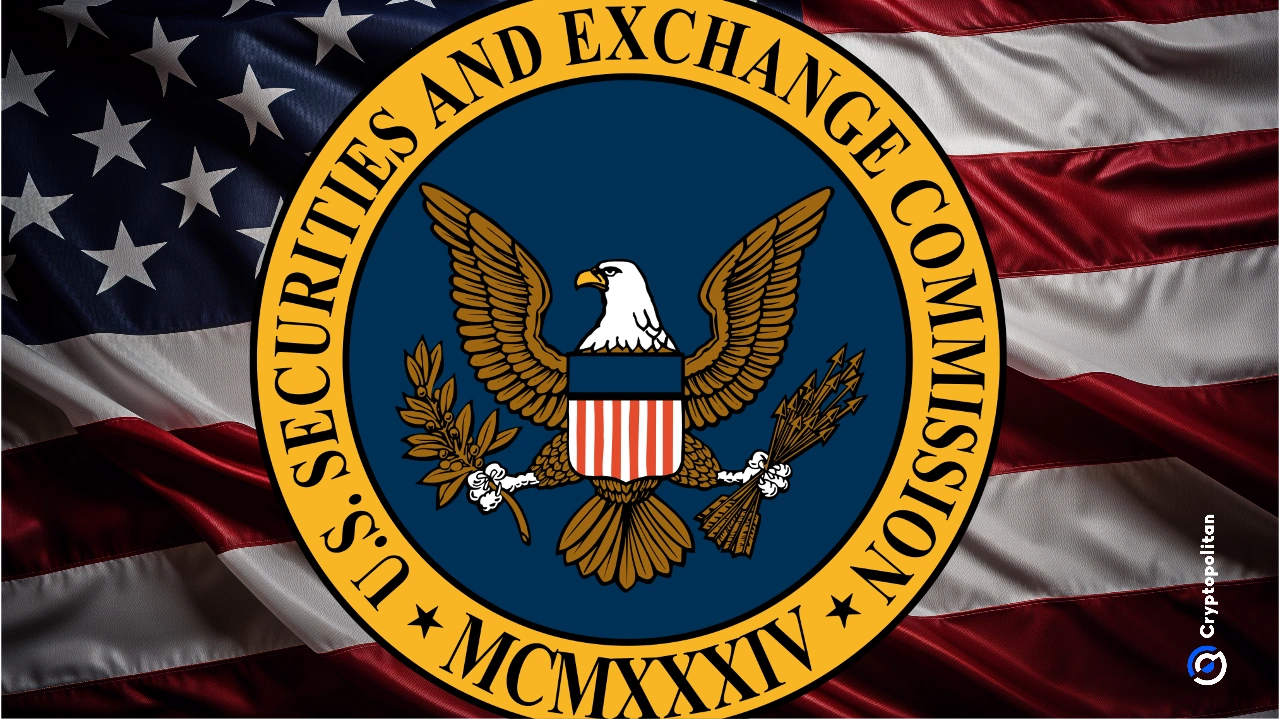The US Securities and Exchange Commission (SEC) just pulled the trigger on its new Crypto Task Force website. The platform officially opened today, inviting public input as the SEC tries to untangle over a decade of confusion and legal gridlock in crypto regulation.
The website comes on the heels of SEC Chair Gary Gensler’s forced exit under President Trump’s pro-crypto administration, and it is a massive change in direction for the agency that was vehemently anti-crypto for the past four years.

Fixing Gary Gensler’s “mess”
The site is an active feedback channel. Anyone—from developers to investors—can request meetings or submit written input. Public comments will be posted on the SEC website unless marked confidential. But don’t get confused: this isn’t the spot to submit whistleblower tips or complaints.
All complaints should go through its dedicated online form or by mail to the SEC’s Complaint Center in Washington, DC. This task force’s main goal is cleaning up what ‘Crypto Mom’ Hester Peirce, an SEC commissioner the new leader of the initiative, described as the “chaotic, meandering crypto road trip” the SEC has been on for years.
“We refused to use the tools we had, slammed on the enforcement brakes too often, and dragged the industry down a winding road with no clear destination,” Hester said.

She blamed the SEC for leaving companies hanging, forcing many to either shut down or spend years in legal battles. “Many cases remain in litigation. Many rules are still stuck at the proposal stage. It’s going to take time to clean up this mess.”
The task force will work with other regulators, Congress, and international bodies to draw clear lines between securities and non-securities. They plan to give crypto projects legal clarity without stifling innovation.
Hester called it a balancing act: “We want a destination where builders can experiment without fear, but where fraudsters have no place to hide.”
Regulatory focus: What the task force will tackle first
First, the task force will focus on defining which crypto assets qualify as securities. The SEC has been vague on this for years, leaving projects guessing whether they’re legally compliant. Hester promised that her team would give a legal classification for different tokens and coins that perfectly fits them all since they’re not all the same afterall, while also working with other regulators like FDIC and CFTC to avoid what she calls “regulatory overreach.”
Next, they’ll tackle temporary relief for token issuers. The task force is exploring a system where token projects could provide updated disclosures and operate without immediate legal scrutiny. “We’re thinking about retroactive relief,” Hester said. “As long as they provide accurate information and agree to cooperate, they’ll be safe from enforcement action.”
They’re also revisiting registered token offerings. Existing frameworks like Regulation A and crowdfunding rules could be adjusted to make it easier for crypto startups to legally raise funds. The task force is even considering changes to the special-purpose broker-dealer rules, which have been largely ineffective so far. “We need rules that allow brokers to handle both securities and non-securities,” Hester added.
On the topic of custody solutions for investment advisers, the task force plans to develop a framework that lets advisers safely hold crypto assets without legal complications, which is a big problem for institutional investors who have often struggled to find compliant custody options.
Hester also said in her press statement that the SEC’s crypto task force is working on guidance for how crypto-lending and staking programs should be under US securities laws.
The SEC is also reviewing crypto ETFs and other exchange-traded products. The task force will provide transparent criteria for approving or rejecting applications and may even consider allowing staking within ETFs. “We’re trying to modernize the framework to match how markets actually work,” Hester explained.
With many crypto projects operating internationally, the task force is also considering cross-border sandboxes—temporary experimental environments where developers can test projects without facing immediate regulatory challenges.
Hester said that international collaboration is essential. “We’re not doing this in a vacuum. We’ll work with regulators across the globe to address cross-border risks and opportunities,” she said.
But don’t expect the SEC to give anyone a free pass. Hester warned that the agency would crack down on projects that ignore legal requirements, even in sandbox environments. “We’re not endorsing any tokens, coins, or products. There is no SEC stamp of approval,” she said. “People can buy whatever they want, but they can’t expect us to bail them out when prices crash.”
As the task force builds its framework, Hester made it clear that the SEC’s primary focus will remain on investor protection and market integrity. “We’re rewriting the rulebook while driving down the highway,” she admitted. “But at least now, we have a map.”
Cryptopolitan Academy: How to Write a Web3 Resume That Lands Interviews – FREE Cheat Sheet
This articles is written by : Nermeen Nabil Khear Abdelmalak
All rights reserved to : USAGOLDMIES . www.usagoldmines.com
You can Enjoy surfing our website categories and read more content in many fields you may like .
Why USAGoldMines ?
USAGoldMines is a comprehensive website offering the latest in financial, crypto, and technical news. With specialized sections for each category, it provides readers with up-to-date market insights, investment trends, and technological advancements, making it a valuable resource for investors and enthusiasts in the fast-paced financial world.
